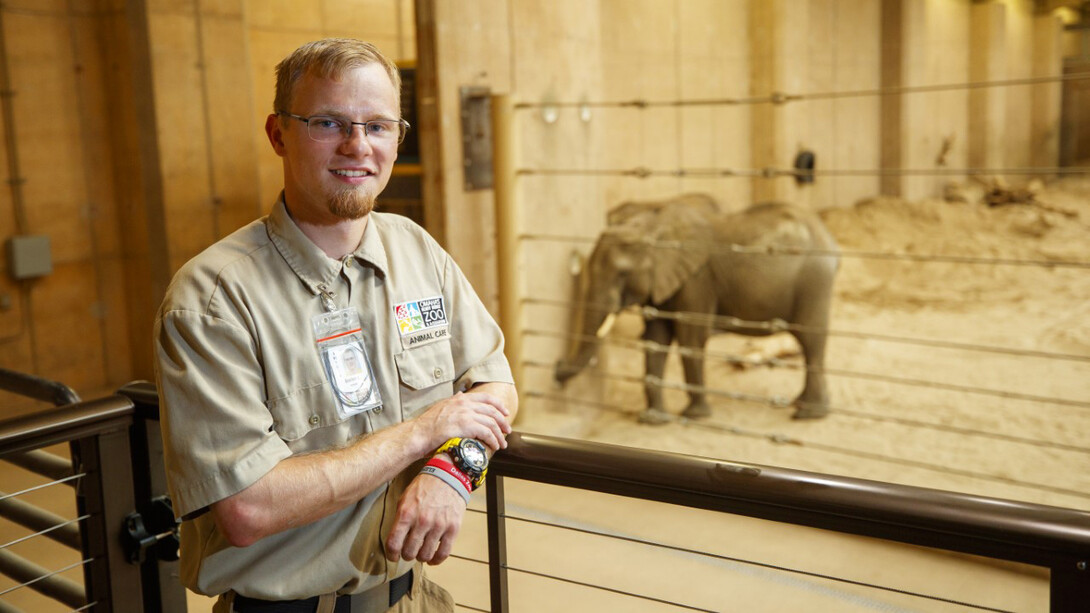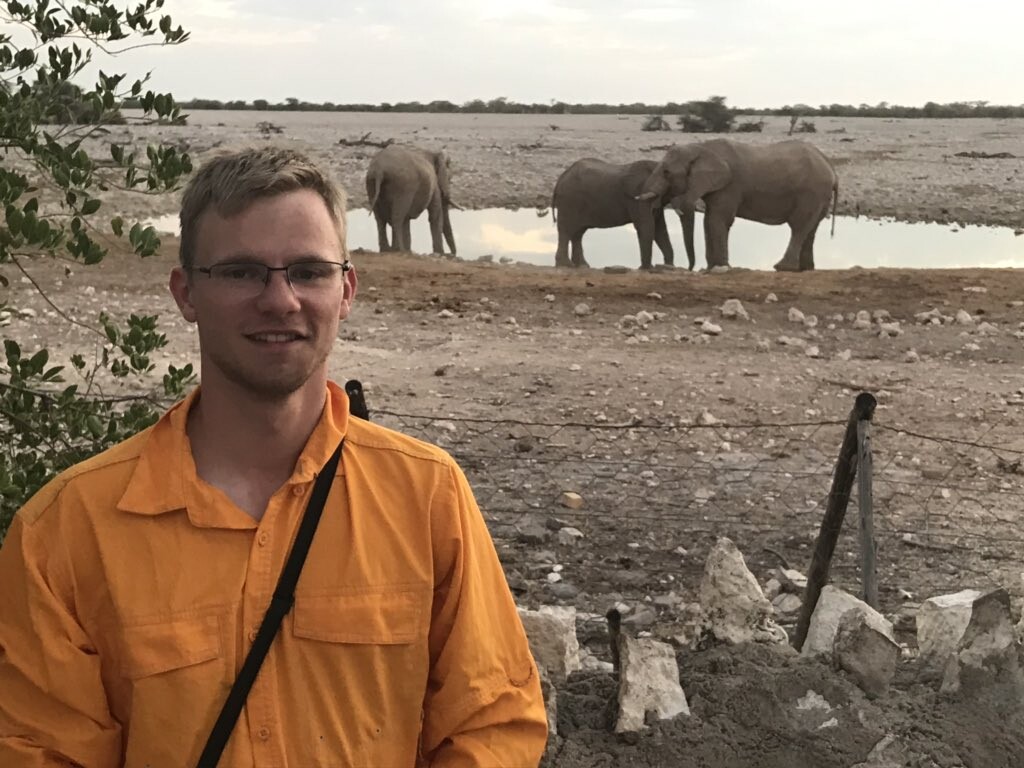
Through a study abroad trip in Namibia and an internship at Omaha’s Henry Doorly Zoo and Aquarium, Husker Stefan Lechnowsky spent the summer observing and working with his favorite animal — elephants.
Fascinated with pachyderms his whole life, Lechnowsky’s only previous up-close experience with elephants was during childhood trips to Omaha's zoo.
Traveling to Namibia in May, through a wildlife conservation study abroad trip with the School of Natural Resources, put a global perspective on an animal Lechnowsky aims to work with in a future career.
“I decided I wanted to study abroad to see how conservation works other than in a zoo,” Lechnowsky said. “It just sounded really interesting.”
Led by Larkin Powell, professor of natural resources, Lechnowsky and other students spent several weeks learning about the country’s diverse approaches to protecting wildlife. Namibia has a distinctively strong focus on conservation, which filled the experience with learning opportunities.

It was a special experience for Lechnowsky, who got to observe a herd of elephants in their natural habitat in Etosha National Park.
“It was amazing. We went to parks, private farms, NGO’s and conservancies, which are groups of farmers who get together and use the land for conservation instead of farming,” Lechnowsky said. “Seeing the elephants in the wild was really unique.”
After returning from the trip, Lechnowsky brought what he learned back to Nebraska as an intern at Omaha's Zoo and Aquarium. He began his internship in June and helps look after the zoo’s elephants. The work includes loading their feeders and hay nets and cleaning enclosures.
Being around the large land mammals has made for a fascinating summer.
“It’s a first step into hopefully a career of working with elephants. I’m getting to learn about their behavior, communication and daily life,” Lechnowsky said. “I can’t wait to get to my career, but I’m also really enjoying learning about conservation at my internship.”
After graduating, Lechnowsky hopes to continue working with the creatures, which are an important part of a larger ecosystem.
“They’re intelligent, and they’re really large, but they’re gentle. They have emotions and care for one another — but like a lot of animals unfortunately, they’re endangered and in risk of going extinct,” Lechnowsky said. “If we protect our wildlife, it allows us to enjoy them for the future and for our children and grandchildren to also enjoy.”







